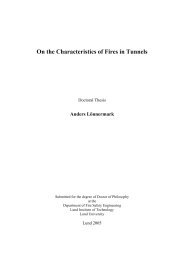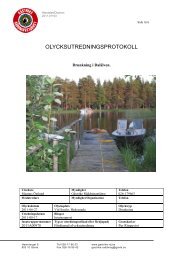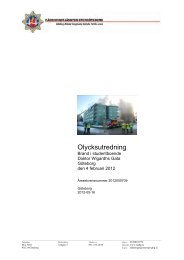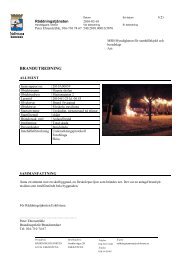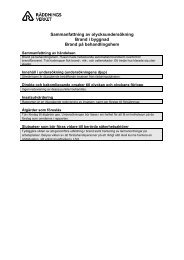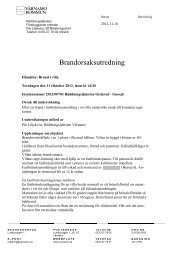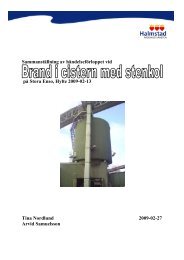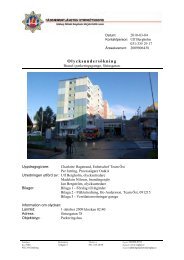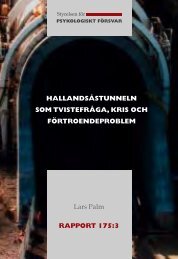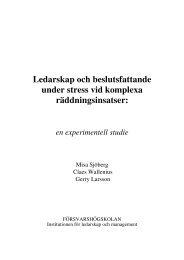Sverige
Sverige
Sverige
Create successful ePaper yourself
Turn your PDF publications into a flip-book with our unique Google optimized e-Paper software.
iences. But this study actually mean that local authorities<br />
and their disaster professionals i many cases have<br />
learnt lessons from previous disasters, even though<br />
the contrary can be observed in some cases.<br />
History teaches and guides us. Experience of previous<br />
incidents and disasters can benefit disaster professionals<br />
in new disasters, but may also be a disadvantage.<br />
Knowledge gained from these disasters influences<br />
the design of a relevant disaster management<br />
organization and can restrict and prevent new techniques<br />
for responding to disasters.<br />
Events like Chernobyl and Estonia have characterised<br />
the forms of response to subsequent local disasters<br />
through “good” and “bad” lessons. We can expect<br />
that these disasters will continue to affect future disaster<br />
response operations, and that management of the<br />
January storm at the beginning of 2005 will become<br />
a guiding star for responding to the natural disasters<br />
that are predicted to become more frequent.<br />
To summarise, previous experience and lessons<br />
learned are highly significant for effective disaster response<br />
and crisis communications in relation to new<br />
extreme events. Experience has specific significance in<br />
the acute phase of the response and in more serious<br />
events where the response is more widespread and<br />
complex.<br />
kris och lärdom 17



